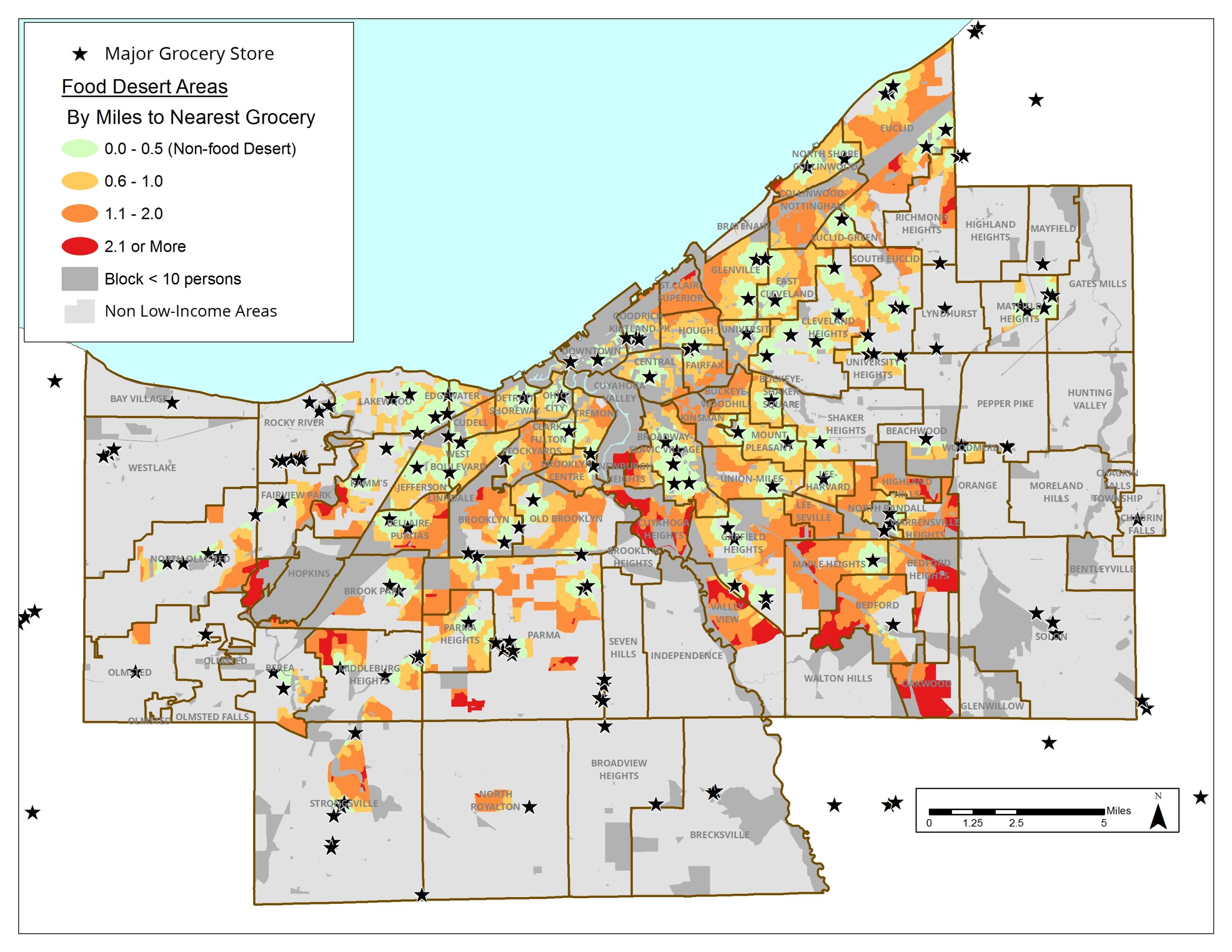Supermarket Strategy and Policy Coalition
Working to improve Cuyahoga County's supermarket landscape
Some communities concentrated in Cuyahoga County’s urban core and inner ring suburbs lack access to supermarkets that provide healthy food, jobs, community services, and economic stability for neighborhoods. This lack of access disproportionately affects people of color and low-income residents. Supermarkets are vital to residents, by providing, healthy, affordable food. Supermarkets are community anchors, providing jobs, economic development, community connections and neighborhood stabilization. Collaboration, municipal support, and community engagement can ensure effective supermarket implementation.
The Supermarket Access Group formed in 2017, as a result of a the Cuyahoga County Supermarket Access Assessment. This assessment found that over 450,000 people in Cuyahoga County are living in a “food desert” (a high poverty census tract that is over 1/2 mile from a supermarket). The assessment also found a connection between the food desert locations and the chronic disease rates. People living in a food desert are more likely to be living in a neighborhood that experiences high rates of death from heart disease, stroke, diabetes, and cancer. Healthy eating plays a major role in preventing and treating these chronic conditions.
Cuyahoga County Supermarket Assessment 2017

Get Involved
Supermarkets should be accessible to everyone in Cuyahoga County
Access to high quality and affordable supermarkets is an urgent and cross cutting issue for communities in Cuyahoga County. Supermarkets impact public health, access to jobs and healthy food, neighborhood stability, tax revenue, and quality of life. Particularly for lower income neighborhoods in Cuyahoga County, supermarket access and “food deserts” deeply affect day to day living. A central goal of this work is to improve access to high quality and affordable supermarkets in low-income neighborhoods across Cuyahoga County.
Click here to read a case study about the Simon’s Supermarket implementation in Euclid, Ohio. A strong collaboration between City of Euclid, Cuyahoga County Board of Health and community residents resulted in this successful supermarket implementation. Sign up HERE to get involved with this work.
National Recognition for Cuyahoga County Supermarket Work
Cuyahoga County Board of Health wins Model Practice Award
CUYAHOGA COUNTY BOARD OF HEALTH RECEIVES 2018 NACCHO MODEL PRACTICE AWARD
CCBH’s award-winning program, “Implementing High Quality Supermarkets Through Community Organizing and Public Health,” highlights the power of coalition building and resident participation as ways to address unjust access and supermarket quality. The program also focuses on associated issues such as community-based collaboration, employment, and resident quality of life.
OVERVIEW CCBH organized a coalition with the intent of developing a high-quality supermarket in a working-class neighborhood in the city of Euclid, an area with low access to grocery items. The supermarket implementation process was unique as it involved direct participation from nearly 600 local residents. The group offered feedback and oversight in order to ensure food quality standards, to establish and maintain relevance to the neighborhood, and to build trust and accountability with the store owner.
$650,000 was secured by CCBH from a state funding source and the City of Euclid provided $125,000 from its storefront renovation program, which is supported by the U.S. Department of Housing and Urban Development (HUD). The supermarket now employs 45 workers and sales of fresh produce have exceeded $400,000 in the first ten months of operation.
